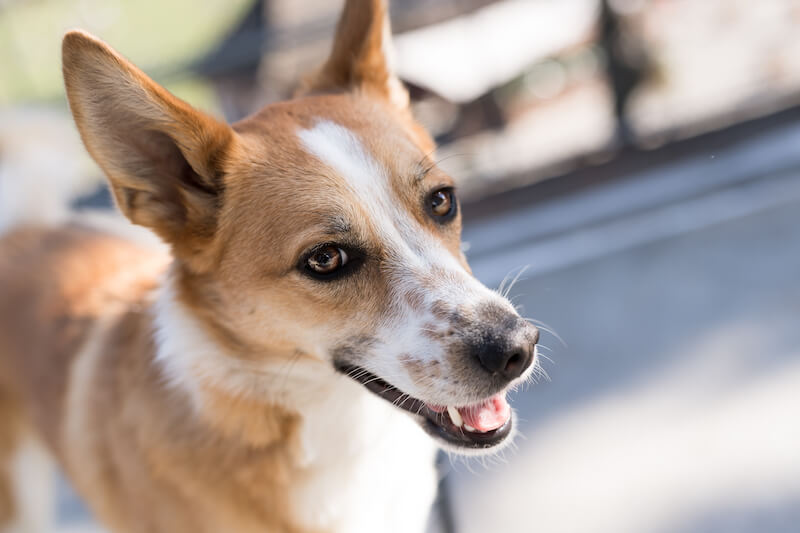Us-Feeling Asking around: from “Mercedes” to “Kopfkino”
If you’ve ever studied in German, you may have heard the saying “Deutsche Sprache, schwere Sprache” (German language, difficult language). If you were to ask our employees, then they would probably tell you that in addition to being difficult, German can also get rather “funny” (and who could blame them?). We’ve asked our employees to find out what they find difficult when it comes to the German language, which words they find most hilarious and whether they have any favourite words. In addition, we also wanted to know words from their own mother tongues that can’t be easily translated into German — like the Turkish word “Yakamoz”, for example, which — roughly translated — means something like “the reflection of the moonlight on the sea”. Beautiful! And since integration is a two-way street, you’re more than welcome to use the word the next time the moon shines down on Lake Zurich.

Freweini was born in Eritrea but spent many years in England. She finds words that are similar to English words, such as “fett” and “fat, especially tricky — this often leads to confusion about how to spell them. One German word she finds very beautiful is the word “Schlange” (Snake).

Maria Magdalena was born in the Dominican Republic, lived in Italy for 18 years and has been in Switzerland since 2020. She speaks five languages. Right now, she’s studying German intensively. She finds the numerical system quite difficult but thinks that the names of fruits are very funny. Her favourite word? “Love”!

Ester is originally from Tanzania and has lived with her family in Switzerland since 2017. She finds it difficult to tell apart the words “kochen” (to cook) and “Kuchen” (cake). And when trying to say “Grüezi” (Swiss slang for hello) and “Schätzli” (Swiss slang for darling) she quickly ends up with a knot in her tongue! She especially likes the word “Bibliothek” (library), because it reminds her of the English word “bible”. On top of that, she tells us that her mother tongue Swahili features several German words, such as “Zahnarzt” (dentist) and “Schule” (school).

Fikadu’s home country is Eritrea. Funnily enough, there is one word in German that she finds particularly complicated, namely the word “kompliziert” (complicated). She feels that “doch” (but) has a nice sound to it, while she likes the words “Entschuldigung” (excuse me) and “danke” (thank you) the most (we’ve got the politest employees, don’t we?).

Selemawit is also from Eritrea and has been living in Switzerland since 2012. Words that are tricky for her include “Kanalisation” (Sewer) and “Initiative” (initiative). Like Fikadu, she finds the word “danke” especially beautiful (We really do we have the politest employees!). One word that doesn’t exist in German but is featured in her mother tongue Tigriyna: “Jebena” — a traditional vessel for drinking coffee.

Almaz, like Selemawit, is from Eritrea. Her favourite German word is “Jesus”. The word she finds the funniest is “Kopfkino” (literally “head cinema”, picturing a situation unfold in your head). Beautiful! She also told us a lot about traditional words from the home country that don’t exist in German. This also includes “Jebena”. And “Zuria”, a traditional garment for women.

Ubah is from Ethiopia. She still finds it very difficult to pronounce “Entschuldigung” (excuse me). She finds the word “sicher” (sure) especially nice sounding, while her favourite sentence is “tut mir leid” (I am sorry). She finds the family structure especially interesting when speaking German: While both her mother’s sister and father’s sister are a “Tante” (aunt), Ubah’s mother tongue has much more specific terms. Her mother’s sister (maternal aunt) is called “Habo”, while her mother’s brother (maternal uncle) is called “Abti”. Her father’s sister (paternal aunt), on the other hand, is called “Edo”, while his brother (paternal uncle) is called “Adeer”! You learn something new every day!

Chrispin was born in Bangladesh and even though we think that her German is already great, she still feels that she has problems with general pronunciation. She also finds German grammar difficult, because it is so different from her own language which doesn’t have grammatical cases. The words “Mercedes” and “Fitness” make her laugh, and “Natürlich” (naturally) and “Liebe” (love) are among her favourites.

Rahya is from Eritrea and has been living in Switzerland since 2012. She also has trouble with pronunciation. She finds the word “Grüezi” both funny as well as beautiful. The word she misses the most from her own language is “Injera”, a bread dish.

Hatun has Kurdish roots and has already lived in Switzerland since 1992. After so many years, she still has trouble with legal or very formal words (you’re not alone in this, dear Hatun)! She likes words that express something positive, like “herzlich” (cordially), “freundlich” (friendly), “hübsch” (pretty) or “süß” (sweet). She shared a saying with us that she learned from her mother, a very diligent and hardworking woman: “Aş sabahın iş sabahın”. Literally translated, it means “Cook in the morning, work in the morning” and roughly corresponds to the German “Morgenstund hat Gold im Mund” (the English equivalent saying being “The early bird catches the worm”).

Embaba is from Eritrea has lived in Zurich since 2018. She’s still having a hard time with words like “Coiffeur/Coiffeuse” (Swiss German for hairdresser) and “Umgebung” (environment). Generally speaking, however, she quite likes the German language, despite the fact that the alphabet looks completely different from the beautiful letters of her mother tongue Tigrinya!

And Nardos? Nardos is from Eritrea, has lived in Switzerland since 2014 and is highly adaptable when it comes to languages: She can’t name a word that she finds particularly funny, but they all sound very beautiful! Only the articles (der, die, das) can sometimes drive her a little mad…






